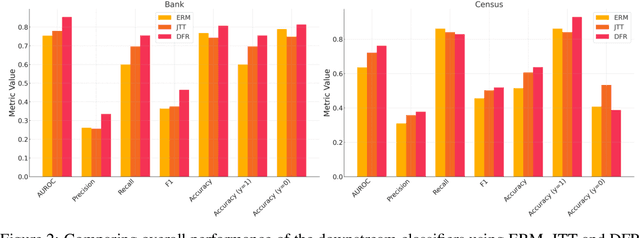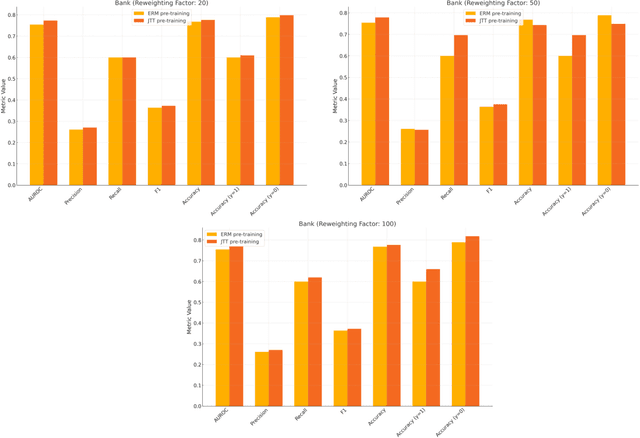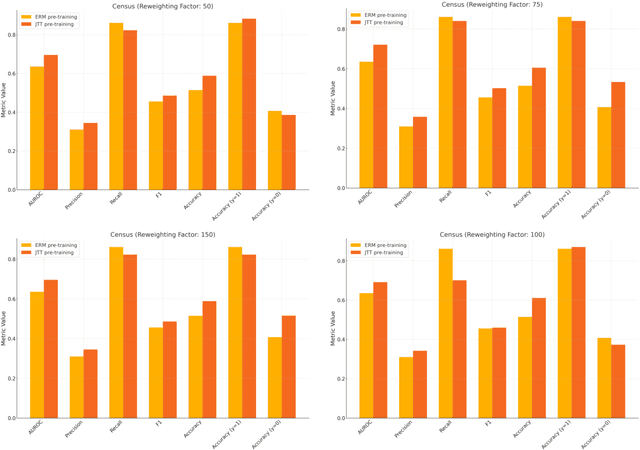Tiankang Xie
Distributionally robust self-supervised learning for tabular data
Oct 11, 2024



Abstract:Machine learning (ML) models trained using Empirical Risk Minimization (ERM) often exhibit systematic errors on specific subpopulations of tabular data, known as error slices. Learning robust representation in presence of error slices is challenging, especially in self-supervised settings during the feature reconstruction phase, due to high cardinality features and the complexity of constructing error sets. Traditional robust representation learning methods are largely focused on improving worst group performance in supervised setting in computer vision, leaving a gap in approaches tailored for tabular data. We address this gap by developing a framework to learn robust representation in tabular data during self-supervised pre-training. Our approach utilizes an encoder-decoder model trained with Masked Language Modeling (MLM) loss to learn robust latent representations. This paper applies the Just Train Twice (JTT) and Deep Feature Reweighting (DFR) methods during the pre-training phase for tabular data. These methods fine-tune the ERM pre-trained model by up-weighting error-prone samples or creating balanced datasets for specific categorical features. This results in specialized models for each feature, which are then used in an ensemble approach to enhance downstream classification performance. This methodology improves robustness across slices, thus enhancing overall generalization performance. Extensive experiments across various datasets demonstrate the efficacy of our approach.
Py-Feat: Python Facial Expression Analysis Toolbox
Apr 08, 2021



Abstract:Studying facial expressions is a notoriously difficult endeavor. Recent advances in the field of affective computing have yielded impressive progress in automatically detecting facial expressions from pictures and videos. However, much of this work has yet to be widely disseminated in social science domains such as psychology. Current state of the art models require considerable domain expertise that is not traditionally incorporated into social science training programs. Furthermore, there is a notable absence of user-friendly and open-source software that provides a comprehensive set of tools and functions that support facial expression research. In this paper, we introduce Py-Feat, an open-source Python toolbox that provides support for detecting, preprocessing, analyzing, and visualizing facial expression data. Py-Feat makes it easy for domain experts to disseminate and benchmark computer vision models and also for end users to quickly process, analyze, and visualize face expression data. We hope this platform will facilitate increased use of facial expression data in human behavior research.
 Add to Chrome
Add to Chrome Add to Firefox
Add to Firefox Add to Edge
Add to Edge